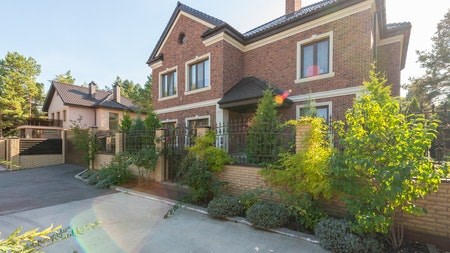Residential estates have become increasingly popular in the past few decades, as most home buyers put security at the top of their list of criteria for buying a property. Unfortunately, living in a secure estate does not guarantee the safety and security of your family.
Crime syndicates continue to target lifestyle estates, often using inside information to gain access, says Charnel Hattingh, Group Head of Communications and Marketing, Fidelity Services Group.
“Although lifestyle estates and complexes offer greater security than most freestanding homes, crime is still a factor,” she says.
Technology
In the fight against crime, technology has fortunately become much more affordable, making it a good option to use as part of the security solution for residential estates and security complexes.
“The key is to find the technology that meets the security needs of the estate and is within budget,” says Hattingh.
Thermal cameras, for example, are proving helpful in enhancing security in estates. These camera systems can warn security officers before an intrusion occurs. Using analytics on these cameras, the system can alert the control room when someone comes within a few metres of the estate perimeter. This gives security officers time to react even before a breach occurs.
Hattingh says a combination of thermal cameras and CCTV cameras is worth considering. Where the thermal cameras read heat signatures only, the CCTV cameras can assist in identifying people or vehicle registration plates.
“Electric fences can and should be incorporated and integrated with the cameras. When there is a disturbance at the electric fence, the camera focusing on that specific zone will be activated. An alarm will be triggered, and the officer monitoring the cameras can watch that zone to see whether there is a legitimate breach or not, and a response team can be dispatched if needed.
“One of the cornerstones of a successful camera surveillance system,” says Hattingh., “is professional monitoring and responses to incidents. If this component is not guaranteed, the system is ineffective.”
Inside story
Even with the best technology installed, Hattingh says residents in estates also have to do their part to ensure their homes are safe and secure.
“Although perimeter security is non-negotiable, you can’t rely on perimeter security alone. Crimes within estates are very often carried out with the assistance of residents’ staff members. It’s essential to properly check references for domestic workers, gardeners, handymen and any contractors that work in your home. You also need to make sure your staff know what to do if any unknown person tries to enter your home when you are not there.”
Perimeter security measures have certainly been successful in lowering crime in estates. However, once criminals gain access to properties within estates, they often have free reign. This is because residents become complacent about their personal home security.
- Be sure to lock doors and windows and ensure vehicles are locked - even if parked in a garage.
- Don’t leave valuables lying around, particularly where they may be visible to passers-by.
Stay alert
One of the most important rules for keeping criminals at bay is always to be alert, particularly when entering and exiting the estate.
“Criminals have targeted residents leaving from or returning to estates and hijacked them a few metres from the gates – and often right in front of the gates. People tend to relax and become less alert the closer they get to home. It’s a mistake to think that you can become complacent because there is a security guard at the gate. If you notice anything suspicious at the gate rather, don't pull in right away but watch from a safe distance,” says Hattingh.
Criminals
Having construction workers on site in estates has historically resulted in elevated crime levels.
Hattingh says you need to keep a careful watch if there is construction on the go and report any suspicious behaviour.
“There is a growing trend in estates where a crime syndicate moves into a home for a short time. While in residence, they monitor the behaviour of residents and initiate house break-ins in the estate before moving out. If you notice any suspicious behaviour, such as blinds or curtains never being opened, report it immediately to your security company,” says Hattingh.
She adds that appointing the right security company is also paramount.
“The first step in appointing a security service provider is to undertake a comprehensive risk assessment. This will enable the estate manager and the team to develop long- and short-term security plans, usually with assistance from a qualified consultant.
“The estate will then be able to determine who to employ, how many security officers are needed, and what the command-and-control structure should look like.”
Written: Sarah-Jane Meyer




